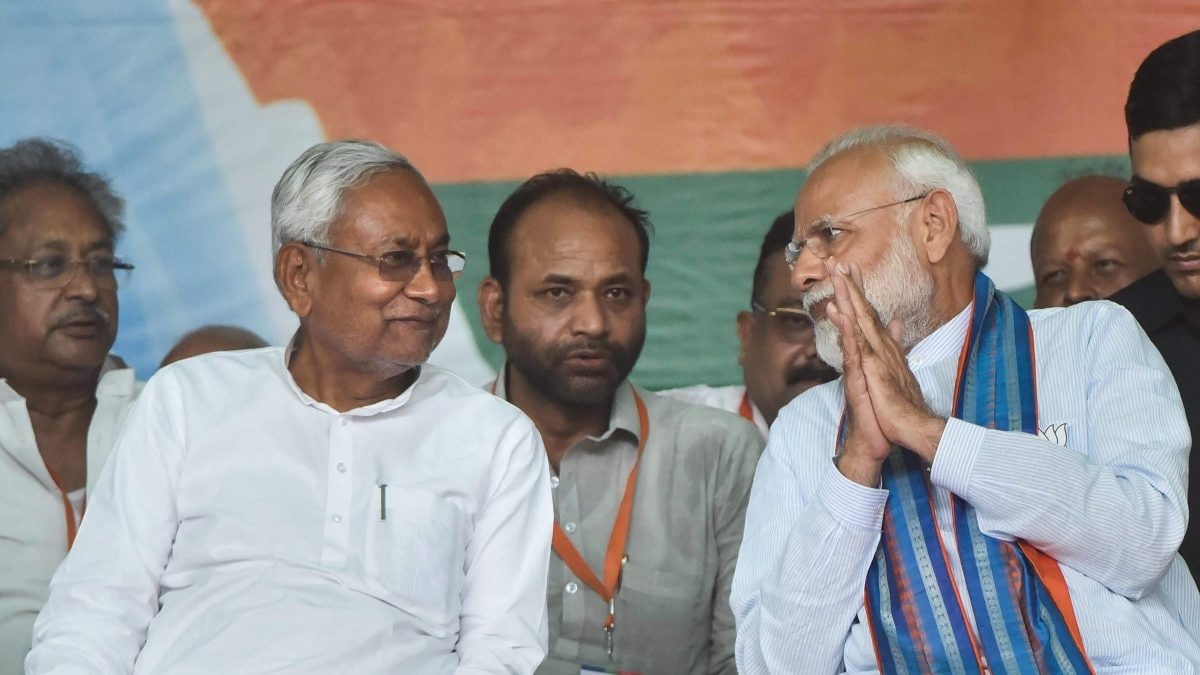Last Updated:January 15, 2025, 11:46 IST
The RSS chief has repeatedly invoked the former President’s views on secularism and cultural identity to drive home the ideological and ‘nationalistic’ points on pluralism and conversion

After his passing in 2020, Mohan Bhagwat referred to Pranab Mukherjee as a 'guide' and quoted him multiple times while addressing programmes. (PTI)
Over the years, Rashtriya Swayamsevak Sangh (RSS) chief Mohan Bhagwat has time and again turned to former President Pranab Mukherjee’s legacy while presenting the organisation’s stance on religious conversions and the idea of secularism. In a recent speech in Indore on Monday, Bhagwat, quoting Mukherjee, said without ‘Ghar Wapsi’, tribal communities could turn ‘Desh Drohi’ (anti-national).
Bhagwat had earlier too cited Mukherjee’s belief that India’s secularism is deeply embedded in its 5,000-year-old tradition. This invocation of Mukherjee’s words, both on secularism and cultural identity, is part of Bhagwat’s ongoing effort to align the RSS’s narrative with the nation’s constitutional principles, positioning conversion as a threat to India’s unity and pluralism.
The RSS chief has repeatedly invoked the former President’s views on secularism and cultural identity to drive home the ideological and ‘nationalistic’ points on pluralism and conversion.
A deep bond
In 2023, three years after Mukherjee’s passing, Bhagwat recalled a meeting with the former President, then ailing, where Mukherjee asserted that the world need not lecture India on secularism or pluralism, as these values are deeply ingrained in its 5,000-year-old tradition. He mentioned that he requested a 10-minute meeting with Mukherjee while the controversy around conversion was going on and the debates were continuing in Parliament.
Most recently, the RSS chief yet again referred to Mukherjee while discussing the contentious issue of conversion, highlighting that Mukherjee believed cultural identity and constitutional principles are intertwined. He said he was asked by Mukherjee what happened to a tribal who converted, to which Bhagwat replied —“They become Christians". Mukherjee, as quoted by Bhagwat, said — “No, they become desh-drohi (anti national)".
Bhagwat then elaborated how religious conversion, which the RSS terms as ‘illegal and forceful’ among the tribal population, is being achieved through luring or intimidation. He further added that the organisation has no issue with legal conversion and it does not matter if the ways of worship change. But, he emphasised that the conversion achieved through ‘threats, intimidation or luring’ makes the tribals move out of their roots.
Mukherjee’s legacy as a ‘bridge’ across divides
Conversion among the tribal population has always been a point of concern and contention for the RSS, which has been working towards Ghar Wapsi (reverse conversion) in Chhattisgarh, Maharashtra, Madhya Pradesh, Jharkhand and in some other states.
By quoting the late Congress stalwart, Bhagwat seeks to position the RSS as aligned with India’s foundational ethos, framing ‘illegal’ conversion as a threat to the country’s cultural unity and secular fabric. Since 2018, when Mukherjee attended RSS’ Vijaya Dashami event as the chief guest in Nagpur and delivered his speech, the organisation was seen as aligned with Mukherjee. After his passing in 2020, Bhagwat referred to Mukherjee as a ‘guide’ and quoted him multiple times while addressing programmes.
Bhagwat’s current statements seem to signal an ongoing attempt to fuse political, cultural, and constitutional narratives, using Mukherjee’s legacy as a bridge across ideological divides.
Location :Indore, India
First Published:January 15, 2025, 11:46 IST
News politics Indore Speech Not The First Time Mohan Bhagwat Quoted Pranab Mukherjee On Secularism & ‘Ghar Wapsi’

 1 week ago
1 week ago















